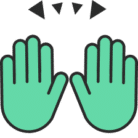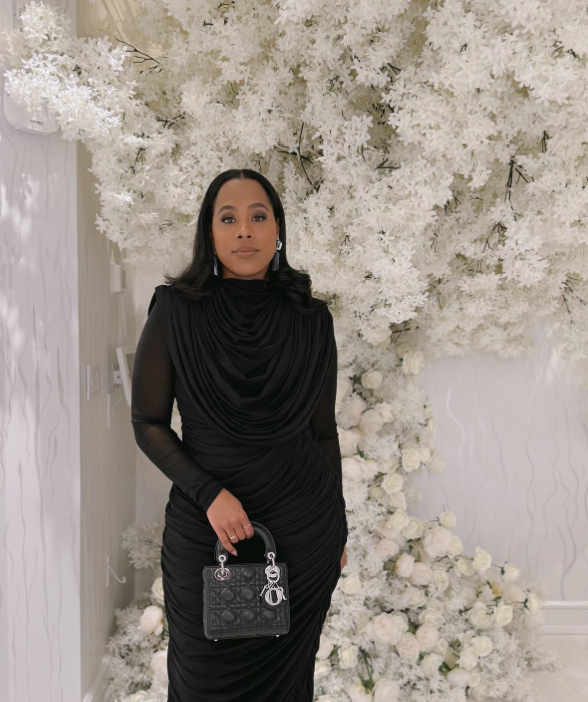Pride Month Q&A with Kenneth Pabon: On Humor, Identity & Showing Up Unapologetically

If you’ve ever laughed out loud at Kenneth’s content and felt unexpectedly seen at the same time, you’re not alone. With a voice that’s equal parts sharp humor and emotional honesty, @kennethpabon brings his full self to every post, skit, and piece of advice whether he’s giving iconic dating tips in heels or sharing vulnerable truths about the journey to self-acceptance.
This Pride Month, we sat down with Kenneth to talk about what it really means to create as a queer voice online, how identity fuels creativity, and the kind of representation (and real allyship) he hopes to see more of – not just in June, but every day. Let’s get into it.
How has your identity as an LGBTQIA+ creator shaped your voice and perspective online?
My identity is at the core of everything I create, not just the jokes or the lifestyle content, but the perspective behind it. Being gay has given me a sharp sense of humor, but also a deep understanding of what it means to be different and still show up unapologetically. I use comedy to connect, but underneath that is a very real desire to create space for people like me to feel seen and celebrated.
Were there any pivotal moments in your journey that helped you embrace your identity more fully, either personally or creatively?
One of the biggest moments was realizing that the more I leaned into who I really am the more authentic and honest I was in my content the more people tuned in. It was freeing. There’s something powerful about not hiding anymore, and once I stopped performing for acceptance and just started showing up as myself, everything changed, both creatively and personally. I saw this in my first viral series “How to Be Iconic” where I gave relationship advice in a dress and heels walking on a treadmill. It sounded absurd but people related to that feeling of being iconic regardless of how people perceive you.
What does Pride mean to you today, and how has that meaning evolved over the years?
When I was younger, Pride used to be a really scary time for me. I hadn’t come out yet, and I didn’t fully identify as gay, so instead of feeling empowered, I felt like I had to hide. It gave me a lot of anxiety. Like I was somehow behind everyone else who was out and living freely. Looking back now, I know that wasn’t true. Everyone’s journey is different, and there’s no timeline for self-acceptance.
Today, Pride feels completely different. It’s a powerful reminder of how far I’ve come — not just in embracing who I am, but in realizing why this month exists in the first place. It’s not just about celebration; it’s about visibility, advocacy, and honoring the people who fought for our rights. For those who don’t have the privilege or safety to be out, we raise our voices. And for those who paved the way, we continue the work louder, prouder, and together.
How do you bring elements of your identity into your content? Is that something intentional or more intuitive?
It’s mostly intuitive. I don’t force it, but my identity naturally comes through in how I tell stories, in my humor, in how I relate to my audience. Being queer is part of how I see the world, so it’s going to show up in what I create, whether I’m talking about dating, fashion, or just having a chaotic Tuesday.
Who are some LGBTQIA+ creators or artists who inspire you?
One of my favorite LGBTQIA+ creators is @bennydrama7. Most people know him for his hilarious videos, but he recently created and wrote a series on Prime Video called Overcompensating. It’s all about the awkward and funny reality of being in the closet while starting college, something I related to on so many levels. It’s not only entertaining, but also really inspiring to see someone from our community creating, writing, and starring in their own show. That kind of representation matters.
The blueprint for my content has always been the legend, Bretman Rock. I’ve been watching them for as long as I can remember. They come from so little and built not just a career, but a life uplifting his family and staying true to himself the entire way. Seeing someone who’s bold, funny, a minority, and queer succeed like that gave me the courage to dream big too. His book “You’re That Bi*ch: & Other Cute Lessons About Being Unapologetically Yourself” inspired me so much I can’t recommend it enough.
What kind of representation do you wish you had seen growing up?
As a Gen Z kid, I actually saw a decent amount of gay representation online. I remember watching coming out stories on YouTube that helped me feel less alone and more hopeful about my own journey. But what I didn’t see enough of was representation of successful gay men — especially in fields outside of entertainment. For a long time, I carried this quiet belief that being gay might somehow hold me back. I internalized the idea that success and queerness didn’t go hand in hand. Of course, I know now that couldn’t be further from the truth. But back then, it felt like a default flaw in who I was and that’s the kind of narrative I wish had been challenged more when I was growing up.
What’s something you think brands or platforms often get wrong about supporting LGBTQIA+ creators?
As a gay content creator, I’ve noticed that some brands only reach out around Pride Month. And while I’m always grateful for those opportunities, it would mean so much more to be considered for campaigns and events throughout the year — not just in June. LGBTQIA+ voices deserve to be part of the conversation year-round, not just when it’s convenient or seasonal. Authentic inclusion is consistent, not occasional.
What does authentic allyship look like to you, especially from brands during Pride Month?
Hire queer creators. Put us in leadership roles. Pay us fairly. And stand with us even when it’s not the “safe” or popular thing to do. Collective Voice reaching out to me not only for this interview but opportunities that aren’t just for Pride month is a great example of this kind of support.
How has being part of the LGBTQIA+ creator community impacted your life or career?
The LGBTQIA+ creator community constantly reminds me that I’m not alone. Every day, I come across a video that’s so specific, so niche yet somehow still completely relatable. It’s a reminder that our shared experiences connect us in the most unexpected ways. This community also helps me not take life too seriously making content. They show me that it’s okay to laugh at myself, to embrace the chaos, and to find joy in being exactly who I am.
What advice would you give to younger LGBTQIA+ creators just starting out?
Start where you are, and be honest about who you are. There are so many creators out there that it may feel like it is saturated but the way to differentiate yourself is being authentic to who you are. You don’t need to have it all figured out, you just need to show up. Your perspective is valuable, even if it’s messy, even if it’s different. Don’t dim your light to fit in. There’s space for you and your voice could be the one someone else really needs to hear.




